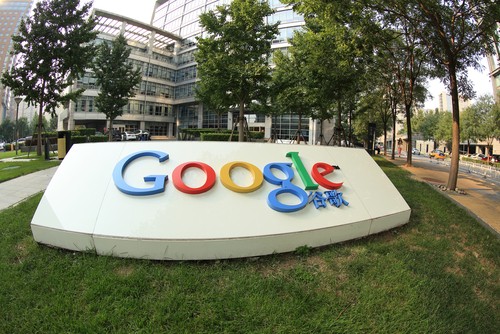
By Sean Noble:
It’s Hong Kong versus China. Freedom versus totalitarianism. Unfortunately, one American company in particular is siding with the anti-freedom side: Google.
Now, more than ever, Google is bending over backwards to cater to China’s needs, and that’s a serious problem. The more time the company spends with the world’s foremost communist totalitarian state, the more similar the two become. China’s authoritarianism, it would seem, is rubbing off on the internet search company. And for freedom-loving Americans, Google’s growing authoritarian tendencies pose a major threat to our way of life.
Recently, Google has operated hand-in-glove with China’s current regime to crack down on the nation’s freedom of expression. In August 2018, The Intercept revealed that Google was working with the Chinese government to launch a censored version of its platform in their country. Project Dragonfly, as it became known, would filter out various pro-democracy and human rights websites from the search engine’s query results. The Google-China partnership was authoritarianism at its worst—but the search engine company was just getting started.
Through its actions, the tech giant is now in the process of bringing one of the most insidious aspects of the Chinese regime to American shores: the complete disregard for intellectual property rights.
China’s wanton stealing of intellectual property is well-documented. According to estimates from the IP Commission, the regime’s theft costs the United States about $600 billion annually. But apparently, Google thinks China’s behavior is worthy of emulation because the search engine company is following in their authoritarian footsteps. The tech giant is currently attempting to enshrine the theft of copyrightable material as acceptable within the American legal system. And soon, they’ll get a chance to present their case to the highest court in the land.
On November 15, 2019, the Supreme Court agreed to hear arguments for Google v. Oracle, a landmark copyright suit with vast implications for intellectual property rights within the United States. Years back, Google took a page out of China’s playbook, stealing Java software from fellow tech company Oracle and using that software to break into the mobile phone marketplace. Oracle sued, arguing that the protections afforded under Java’s copyright were obviously violated. But Google disagreed and contended that certain software—particularly the code utilized within it—isn’t subject to copyright.
Basically, Google wants to redefine the rules by allowing it to take IP from other businesses without consequence. The Trump administration has already urged the Supreme Court not to engage with Google’s arguments or grant the company a favorable decision. If the Supreme Court were to do so, the consequences would be severe.
As it stands, the tech giant’s stated position is clearly hostile towards digital intellectual property, as a ruling in their favor would undermine the foundational protections that copyright provides. If Google were to get their way, the Supreme Court decision would gut the legal ramifications for the theft of digital IP. It’s a sentiment with which China would certainly agree—and that’s no coincidence.
Increasingly, Google has broadcast both its allegiance to China and its preference for authoritarianism—the lawsuit wasn’t merely an outlier. In early 2019, the Pentagon revealed that Google was actively aiding China’s People’s Liberation Army by providing it with artificial intelligence technology. At the same time, however, Google had announced that it would no longer provide similar support to America’s military. It was a move that Peter Thiel, the co-founder of PayPal, called unprecedented. He even urged the United States to investigate Google for any foreign infiltration at the tech giant. But Google wasn’t done pandering to China just yet.
In mid-October, Google worked with other big tech companies in a concerted effort to weaken Hong Kong’s pro-democracy reform efforts. Together with Apple, Google pulled Hong Kong protest apps from its platform’s app store. It was a decision that undoubtedly harmed protesters’ ability to organize demonstrations against the Chinese regime. But it was nevertheless more of the same from Google, a company that consistently aligns itself with China’s authoritarian aims.
Slowly but surely, Google has become increasingly similar to China. The tech company has fully embraced China’s position toward censorship, Hong Kong, and intellectual property. While Google’s lawsuit is certainly the latest embrace of authoritarianism, it likely won’t be the last.
As China has clearly demonstrated, authoritarians don’t care much for protecting the rights of others. And unfortunately for Americans, if Google’s lawsuit is any indication - neither do they.





Leave a Reply
Thank you for your response.
Please verify that you are not a robot.